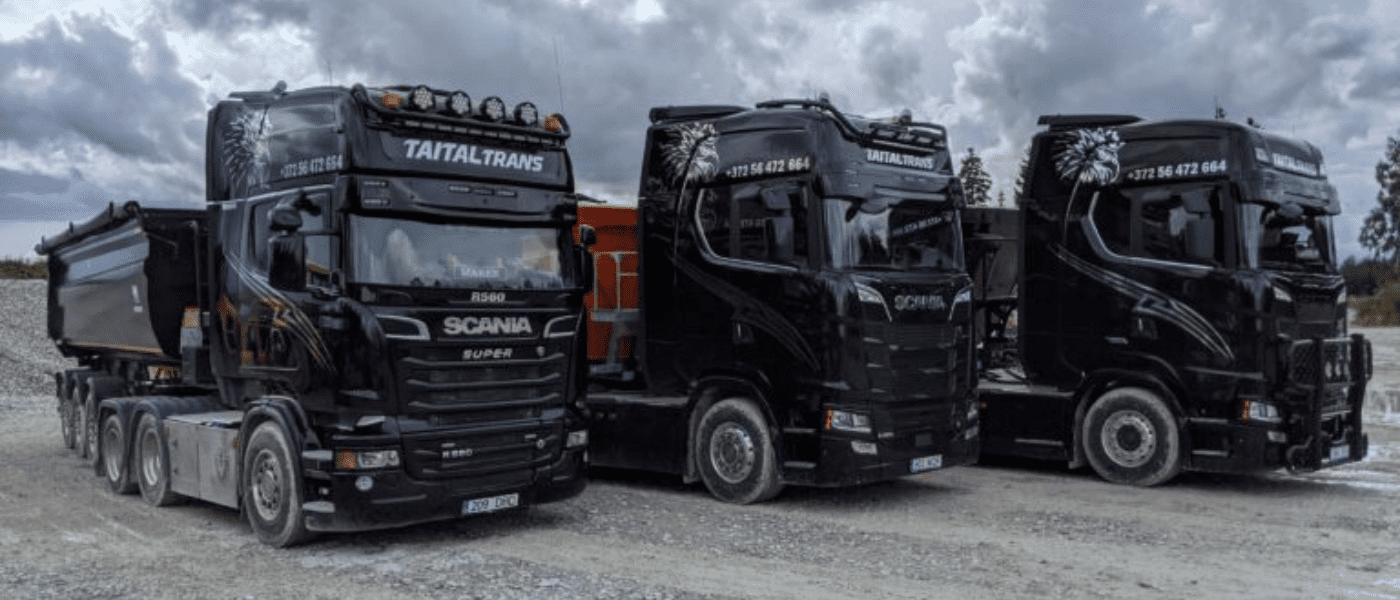Real-time visibility into shipment details is not just a luxury—it’s a necessity. The ability to track and manage every aspect of transportation in real time ensures smooth operations, reduces errors, and enhances overall efficiency. This is precisely what Waybiller offers, transforming the logistics processes for companies like HansaPeat OÜ and Taital Trans.
The Value of Real-Time Information
Every manager can understand the value of having accurate real-time information for decision-making. Mass transportation involves instant access to vital shipment information, including total e-waybills created, truck position, and cargo amounts. With Waybiller, every involved party has access to this data, reducing misunderstandings and disputes. This capability is especially valuable to managers for maintaining smooth operations; if needed, they can make timely decisions. For companies like HansaPeat OÜ, an Estonian peat and moss production company, real-time visibility through Waybiller has been a game-changer.
HansaPeat OÜ started to use Waybiller to improve their logistics operations. This resulted in an efficiency boost and access to real-time data allows HansaPeat to send out invoices on the same day as delivery happened, eliminating all the manual work of a paper-based delivery process. The all-inclusive visibility that came with Waybiller means that all parties involved in the shipment process now have access to accurate information in real-time, instead of a 2-week delay as it used to be.

Time-Saving Operations for Transport Organisers
For transport companies, Waybiller is a vital everyday tool. As e-waybills have become a standard in the Estonian mass transportation industry, it also means that transportation companies have the requirement by clients to switch their paper documentation to digital counterparts. However, in the process, companies found out that using Waybiller has many perks besides just digital waybill. The software solves several issues that similar companies were having and where a lot of manual, inefficient work was being done.
The experience of Taital Trans was one of the early adopters of the new technology in 2020 when Waybiller was first coming out with a product. Before Waybiller, managing paper waybills, manually invoicing clients and keeping all the paper waybills scanned and stored took several working days each month. With Waybiller, this process now takes only a few hours, saving approximately 40 hours monthly and drastically reducing paper usage—about 30,000 sheets of paper yearly, just for one company alone.
Legal Compliance and Weight Management
In Estonia, companies that use e-waybills are gaining a competitive advantage in the market. Using e-waybills is one requirement for applying for a special permit to increase the allowed total mass of trucks and trailers by up to 52 tons. Waybiller’s real-time weight monitoring guarantees compliance with these regulations by alerting drivers if the weight exceeds legal limits. Using digital solutions provides the transparency that is necessary for the local transportation administration to allow heavier loads onto roads. Also, trucks using e-waybills can be controlled by police without actually stopping the truck, reducing the time spent standing and performing weight measurements.
Material producers that have integrated their scaling systems can see the maximum capacity allowed for every truck while loading it. This significantly reduces overweight transportation and reduces loading errors, where overweight happens by accident, and trucks would need to unload and reload the material. Our clients particularly value Waybiller’s reporting feature. It serves as a definitive proof of delivery for every involved party, confirming the accurate amounts of material and that the same data set is used for invoicing. This boosts efficiency for everyday processes and allows companies to gain an advantage using digital solutions.

Integrating Weighing Interfaces for Smooth Operations
One of Waybiller’s standout features is its ability to integrate weighing systems, as we have at Sillamäe Port. This integration allows scale data to be automatically registered on the waybills, providing instant data visibility to all involved parties. For Hansapeat, the precise weight of the load helps assess the quality of the peat and make instant decisions, further increasing operational capability. The same scale system integration that increases efficiency for Hansapeat also decreases the manual labour for the service provider, Sillamäe Port, who does not have to send the information manually to Hansapeat.
Sillamäe Port is also using e-waybills as gate permits to enter the port territory, meaning that it is no longer necessary to manually deal with the truck gate permits. As soon as the truck starts delivery towards Sillamäe with an e-waybill, the gate permit will be automatically created, and the truck will have access granted at the gate. This allows the truck movement to be smooth and problem-free.
Paperless Future
The transition to e-waybills has moved companies towards a paperless future. The digital waybill is superior in every aspect compared to its paper counterpart. A good e-waybill system saves time, reduces errors, and eliminates issues related to missing or hard-to-read handwritten waybills. All parties involved in the logistics process have real-time access to orders, transport details, and e-waybills, ensuring transparency and efficiency. For HansaPeat and Taital Trans, the transition to e-waybills has modernised their operations and positioned them at the forefront of logistics innovation. E-waybills are here to stay, and companies that have already switched to a digital solution are a step ahead of competitors.
























